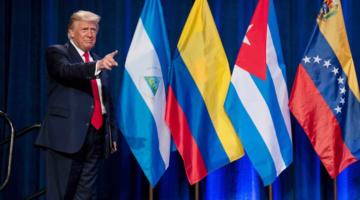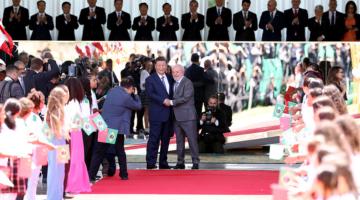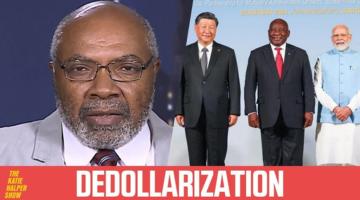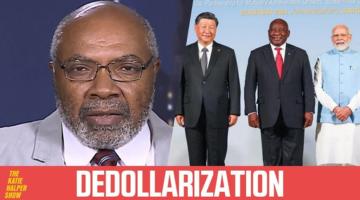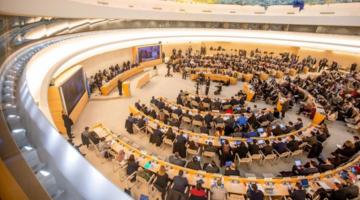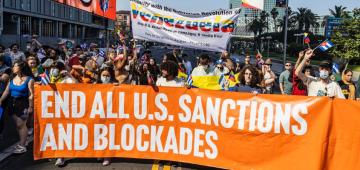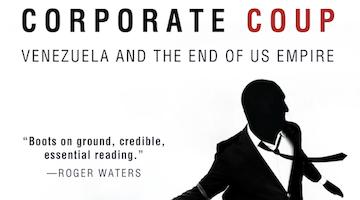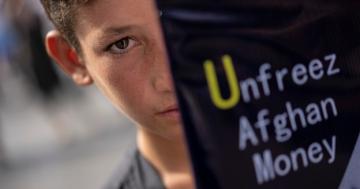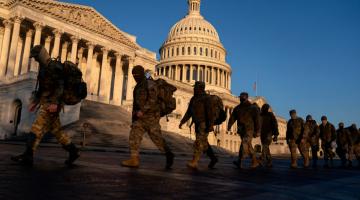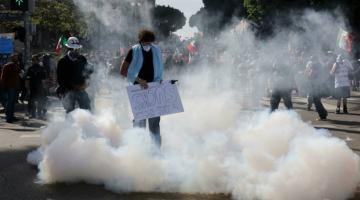Four consecutive US governments have incrementally expanded their reliance on using the US dollar as a weapon of war, forcing nations across the world to create alternative financial systems and pursue de-dollarization.
Originally published in The Cradle.
The US government currently imposes sanctions on a third of all nations on earth in a situation that disproportionately affects low-income countries – 60 percent of which are under US sanctions of some kind – according to an analysis of the White House’s long-standing policy of economic warfare by the Washington Post.
This trend spiked during the last four US governments and reached a fever pitch under President Biden, who imposed over 6,000 sanctions in just two years.
“It is the only thing between diplomacy and war and, as such, has become the most important foreign policy tool in the US arsenal,” Bill Reinsch, a former Commerce Department official, told the US news outlet. “And yet, nobody in government is sure this whole strategy is even working.”
Washington’s over-reliance on using the US dollar as a weapon of war took a marked turn following the 11 September attacks in New York City. Up until then, economic sanctions had primarily targeted “rogue states” like Cuba and Libya to block them from taking part in the global financial system and instigating regime change.
However, from 2001 onward, sanctions were more freely used by successive US presidents to isolate nations worldwide, in particular, shifting their strategy to West Asia and further east. “As the Treasury Department became a key player in the global war on terrorism, US policymakers began to understand the power of the nation’s financial hegemony,” the Washington Post details.
The spike in US economic sanctions globally came hand in hand with the growth of a parallel multi-billion-dollar lobbying and influence industry in which foreign governments and transnational corporations “spend exorbitant sums to influence the system.”
“Congress got in on the act, flooding the State Department and the White House with requests for sanctions that, in some cases, appeared intended to cut off foreign competition to home-state industries,” the report details, adding that, at a holiday party in 2011 Adam Szubin, then director of the Office of Foreign Assets Control (OFAC), sang a song titled “Every Little Thing We Do Is Sanctions.”
“Smart sanctions were meant to be a buffet of choices where you fit the particular imposed sanction to the offense and vulnerability of the country,” George Lopez, a sanctions scholar at the University of Notre Dame, told the Washington Post. “Instead, policymakers walked into the buffet and said, ‘I’m going to pile everything onto my plate.’”
This approach by a revolving door of White House officials ignores the devastating effect of economic coercion policies on civilian populations, as countless studies have shown that sanctions cause immense suffering and possibly deaths in the hundreds of thousands.
“The inconvenient truth is that these sanctions indirectly affect the health of people and generally result in devastating consequences … Soon after imposing economic sanctions on a country, many essential life-saving drugs become unavailable. Even production of some drugs being manufactured in a country is decreased, or even stopped, because of a shortage in basic ingredients or spare machine parts,” Iranian researcher Farrokh Habibzadeh wrote in a letter published by The Lancet in 2018.
“Lack of spare parts affects not only medical devices but also other necessary infrastructures such as electric generators; frequent power cuts cause serious problems (loss of vaccines, drugs, ventilators, monitors, etc). Hundreds of thousands of people die in silence from diseases. This quiet mass murder in a part of the world that is submerged in turmoil is not even noticed or is perhaps overlooked,” Habibzadeh adds.
“The mentality, almost a weird reflex, in Washington has just become: If something bad happens, anywhere in the world, the US is going to sanction some people. And that doesn’t make sense,” Ben Rhodes, who served as deputy national security adviser in the Obama government, told the Washington Post. “We don’t think about the collateral damage of sanctions the same way we think about the collateral damage of war,” Rhodes added.
According to the report, staffers from the US Treasury Department drafted an internal proposal in 2021 for the newly elected Biden government to restructure the sanctions system in what could have been “the most substantial revamp of sanctions policy in decades.”
However, the White House refused to implement most of the changes and instead has doubled down on upholding thousands of sanctions against hundreds of nations and continued imposing even more.
“By the time Treasury publicly released its '2021 Sanctions Review in October that year, the 40-page draft had dwindled to eight pages and contained the earlier document’s most toothless recommendations,” people familiar with the internal proposal are quoted as saying.
Similar discussions on revamping Washington’s economic coercion policies collapsed in 2022 following the start of the Russia–Ukraine war.
“Until recently, western policymakers have maintained a dogmatic belief in the efficacy of sanctions despite the fact that they had clearly failed to achieve their intended policy outcomes in most countries … But, like St Augustine, who counseled against trying to understand the workings of the heavens, policymakers committed to sanctions policy felt it was ‘not necessary to probe into the nature of things,’” Esfandyar Batmanghelidj, CEO of the Bourse & Bazaar Foundation, wrote for Responsible Statecraft earlier this year.
The continued reliance on sanctions by the US has pushed many nations across the world to consider de-dollarizing bilateral trade. It has also boosted interest in alternative economic blocs such as BRICS, Mercosur, and the Shanghai Cooperation Organization (SCO).

